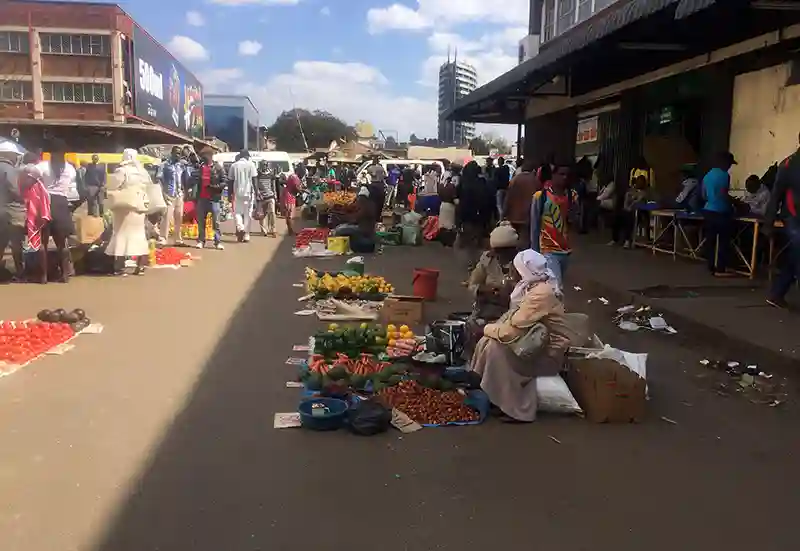VISET Expectations on Mid Term Budget Review By. Minister of Finance
The Vendors Initiative for Social and Economic Transformation (VISET) takes note of the Mid Term Budget Review presentation to be done by Minister Mthuli Ncube on 16 July 2020.
In a report by the IMF in 2018, Zimbabwe was said to have the second-largest informal economy, as a percentage of its total economy. Indeed some statistics indicate that the informal sector makes up as much as 68 per cent of GDP.
It is our hope that the Minister in his statement tomorrow will be guided by such statistics, as it is very much a fact that most of the economy resides in the informal.
As VISET, we have certain expectations that we believe should be addressed by the Minister, in particular as his review comes at a time the nation and indeed the world is grappling with the Covid-19 pandemic.
The advent of the disease has seen economic carnage wrought across the board and the informal sector in Zimbabwe has borne much of the damage.
In light of this, here are what we hope will be included in the Minister’s review;
1. Cushioning Fund/Restocking
As local authorities reopen Informal Traders Markets, it is our belief that the Minister should allocate an amount that enables traders to restock, as most have exhausted business earnings over the shutdown period. The cushioning fund that had been previously announced at the beginning of the lockdown has yet to be received by the intended recipients.
2. Infrastructural Fund
The advent of the Covid-19 pandemic necessitates the exercising of hygienic practices, along with social distancing. Currently, most trading places throughout the country have facilities that are woefully inadequate for these times. Provision of running water is vitally important along with paved market stalls if the disease is to be contained.
3. Import substitution fund
With the closure of the country’s borders, most traders have been hit hard by the inability to source goods for resale.
We hope the Minister will allocate an amount for the local industry to be able to procure/produce raw materials locally.
According to the World Trade Organisation, global trade is set to decline by 13-32 % and that most countries will enact protectionist policies that will restrict exports of certain products.
This makes it highly incumbent upon countries to promote domestic production.
4. Review of the tax regime
There can be no doubt that the introduction of the 2 per cent tax is a great inhibitor for business, in particular, those in the informal sector.
It is our belief that the Minister review this tax, along with the entire tax regime as part of COVID-19 mitigatory measures.
5. Capacitation
The mandatory requirement for masks and sanitizers presents an opportunity for the government to capacitate the informal sector for the production of these products as this will ensure greater reach for distribution in local communities.
6. Review of the National Social Security Authority
The ravages of the Covid-19 pandemic have brought to the fore the inadequacies of the National Social Security Authority (NSSA).
It is our prayer that the Minister will undertake a review to ensure inclusion of the informal sector in NSSA operations so that they may make contributions at concessionary levels and can be cushioned in the event of loss of income as happened under lockdown.
7. Healthcare stimulus package
The Covid-19 pandemic has exposed the fragility of our healthcare system.
It is incumbent upon the Minister of Finance to ensure that all measures are undertaken to address concerns by health care personnel, including but not limited to remuneration, provision of personal protective equipment and testing facilities.
These people at the frontline of this deadly disease must be empowered if the fight against it is to succeed.
6. Review of the National Social Security Authority
The ravages of the Covid-19 pandemic have brought to the fore the inadequacies of the National Social Security Authority (NSSA).
It is our prayer that the Minister will undertake a review to ensure inclusion of the informal sector in NSSA operations so that they may make contributions at concessionary levels and can be cushioned in the event of loss of income as happened under lockdown.
7. Healthcare stimulus package
The Covid-19 pandemic has exposed the fragility of our healthcare system.
It is incumbent upon the Minister of Finance to ensure that all measures are undertaken to address concerns by health care personnel, including but not limited to remuneration, provision of personal protective equipment and testing facilities.
These people at the frontline of this deadly disease must be empowered if the fight against it is to succeed.
Conclusion
VISET believes that consultative decision making is key to progress and it is our hope and prayer that policymakers do away with a top-down approach and begin to consult widely before coming up with policies.
We stand ready to engage with any government department or ministry to the betterment of not only our sector but the country.
Vendors' Expectations On Mid Term Budget Review {Full Text}

